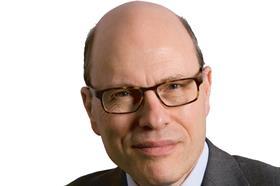Donald Trump seems to be finding it more difficult than he had thought to end the war in Ukraine. Rather than relying on the force of personality, European leaders are putting their faith in the rule of law. Will they be any more successful?

More than three years into the fighting, their aim is accountability rather than deterrence – although perhaps some may believe that bringing Russian leaders to justice would deter future invasions.
The obvious tribunal is the International Criminal Court (ICC) and the obvious charge would be the crime of aggression. This is the ‘leadership crime’ committed by those who order the use of armed force against another state in breach of the UN charter.
However, the ICC is powerless unless aggression has been committed by a national of – or on the territory of – a state party to the court’s statute. Russia has not signed the statute and Ukraine was not a full member at the time of the invasion.
The best the ICC has been able to come up with so far is an arrest warrant for Vladimir Putin and his children’s commissioner, accusing them of committing war crimes by unlawfully transferring children from occupied areas of Ukraine to Russia. That could be a useful holding charge but nobody would regard it as reflecting the gravity of what has happened.
So European leaders have given their backing to an entirely new court, to be called the Special Tribunal for the Crime of Aggression against Ukraine. It would try senior political and military leaders accused of planning, preparing, initiating or executing the war of aggression that Russia and its allies launched in 2022.
Ministers from almost 20 European nations gave their political support to the tribunal at a meeting in Lviv last week, welcoming completion of the technical work required to set it up.
David Lammy was among them. ‘It is absolutely clear that when this war is over,’ the foreign secretary told reporters, ‘those who have perpetrated it in Russia must account for their crimes of aggression and crimes against humanity.’
The tribunal will be established by the 46-nation Council of Europe, best known for supporting the European Convention on Human Rights and the court that enforces it. The project has also received strong political support from the European Union, whose lawyers have helped draft the tribunal’s core documents over the past three years.
Read more by Joshua Rozenberg
On Wednesday, Council of Europe foreign ministers accepted a formal request from their Ukrainian colleague to start the process of establishing the special tribunal. By the end of this year, a treaty could be open to signature by countries that are willing to pledge their political and financial support – including states beyond Europe.
Some 15 months ago, Professor Philippe Sands KC, the first international lawyer to call for a new tribunal in 2022, accused the ICC of taking part in a turf war to protect its own jurisdiction. But the Council of Europe says the new tribunal would be complementary. If a defendant is arrested by the ICC, its proceedings will have primacy.
A ‘management committee’ of supporting states will elect 15 judges to the tribunal. Although they will follow internationally recognised standards, their powers will be based on Ukrainian territorial jurisdiction. I understand this to mean that Ukraine will delegate the power that every country has to try those who wage war on it.
How realistic is all this?
‘Some countries that support the idea of the special tribunal are still engaged in sensitive diplomatic discussions,’ the Council of Europe says in a briefing note. ‘They may be weighing how to balance their legal commitments, political alliances and broader foreign policy goals.’ What that apparently means is that they are worried about charges of aggression being brought against their future leaders or allies.
There is also no question of prosecuting Putin or his most senior colleagues while they remain in office – though heads of state, heads of government and foreign ministers can be brought to trial once they have been deposed. But this is not just a ‘get Putin’ court. Lawyers think that up to 20 of Russia’s most senior political and military leaders might have sufficient personal responsibility to face aggression charges.
Arresting them is likely to be a challenge. But the tribunal would be able to conduct proceedings in the defendants’ absence, provided this was in the interests of justice.
Since it opened its doors in 2002, the ICC has failed to live up to the hopes of its supporters. One reason is that the three individuals appointed to the key role of prosecutor have secured only 11 convictions in 23 years. Another is that a court run by 125 nations is inevitably subject to political pressures. Ukrainians must be hoping that a smaller, highly focused tribunal can do rather better.
joshua@rozenberg.net































6 Readers' comments